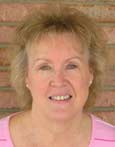Susan Daniels
If Sam Spade had been Samantha:
Cleveland's Female Private Eye Charlie's Angels. Pepper Anderson. Jessica Fletcher. These are the names that come to mind when you talk about women P.I.'s - private investigators.
Another name to consider and add to this list is the real life Private Investigator, Susan Daniels. "Like any other job, you learn how to do it. Most of it is common sense and not really very mysterious." She says that most investigators are not really social beings, but appear to be. She says this description applies to her too. "You deal with a lot of people, but it's short term. They are people you never see again." Susan is a self-described loner, so this is a good business for her, "I work best with very little direction." Susan works almost entirely for law firms. Whether it is criminal defense work or civil litigation, she is hired to help the firm win their case. She has worked for both the prosecution and the defense in cases involving such things as insurance fraud. She is also called on often to locate missing people and "95% of the time I'm successful."
She tells the story of a man suing a relative because he says he was hurt at a family function. The man being sued refused to settle, even though his insurance company was willing to give $30,000 just to close the case. The case went to the jury and Susan's surveillance work paid off. She filmed the man walking steps, driving and doing side jobs while he was supposedly off work. "One picture really is worth 1000 words. It doesn't seem to occur to people that there really could be someone watching. In this case the man got exactly what he deserved - nothing!" 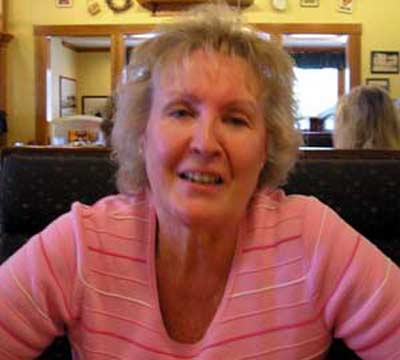
She also remembers the single most satisfying case she ever worked on and "I made the least amount of money on it and it was the most satisfying." It was the case of a ten year old girl who accused her step-father of molesting her. The alleged molester's attorney was the one who hired her. "The man who was accused had such a fine reputation and was known as such an honest man that his boss actually paid for his defense. Actually, even the mother questioned the girl's story." The step-father was in jail while the case was investigated. Susan talked to the girl for about an hour when finally the girl asked her "What if she lied?" Susan said "Do you mean what if you lied? Then she admitted that she did lie."
Susan transcribed the tape and gave it to the attorney. The prosecutor had the tape for three months before acting on it. The day the trial was set to go forward the prosecutor dismissed the case. "This guy spent three months in jail for nothing. He deserved to be out and I was so happy to be part of getting him out." Susan emphasizes that she doesn't lead anyone. "I ask questions and let people tell me what the truth is. More often than not it will come out if you just ask the right questions and then listen to the answers."
Whenever things go wrong Susan thinks about the case of the wrongfully accused step-father and feels a little better. "This work is very satisfying. When things go well they go really well. When things go wrong though, they go completely to crap."
Susan does not advertise, she works strictly through referrals. Part of her success is that, as she says "I am just someone on the street. I can sit in front of a school for two hours and no one will bat an eye."
A lot of Susan's business relies on knowing the right people - and she does. She belongs to every professional organization she could get into, including groups like The Metro Crime Clinic (all investigators or police officers) and The Federal Criminal Investigators Association. She was recently approved as an associate member of the Cuyahoga County Police Chief's Association.
She admits that police in general look down on PI's, but she has earned a good reputation and credibility. "All we have is our reputation." "Everybody I meet says "Oh I could do that. I could be a private investigator. How insulting is that? What makes them think this job is so easy? I think it is very insulting when people act like I'm just a nosy neighbor reporting on what I see."
In her surveillance work Susan almost always works with a second person. "Surveillance is the absolute hardest part." It can involve long, tedious hours and can turn confrontational if you're spotted. About 85% of her cases involve some form of surveillance.
Although Susan knows some investigators who will take every job, she is not one of them. "I'm not a numbers person - I don't do white collar." 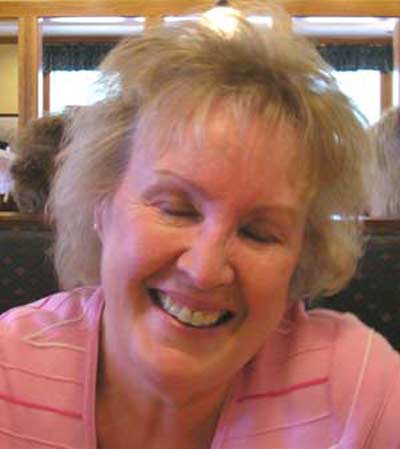
Susan has not always been a Private Investigator, in fact the road that brought her there is a winding one.
She was born in Cleveland July 9, 1941. "I'm a Cancer; we're home bodies and artists. There's Aries rising - a fire sign. That makes me pretty ornery and mix that with being Irish and watch out!" She doesn't really believe too much in astrology at least "not enough to plan my life by it" but she finds some of it interesting. She went to Caledonia Elementary School in East Cleveland even though she lived in Cleveland Heights. She went to Kirk Jr. High and Shaw High School. Susan was the third of four children. She is Irish, (her maternal grandparents were born in County Dublin and County Fermanagh) and French. Her father's family is from Calais France. They left there in 1760 and came to this country. They were in fact the first settlers in a new Ohio city, which they named Calais (Calais is in Monroe County.) Her oldest brother, Jim is a stockbroker. Her only sister, Marianne, lives in Willowick. Susan was extremely close to her youngest brother, John DeMent who died 12 years ago of Crohn's Disease.
Right out of High School Susan took classes at Fenn College and got married. Tragically her husband died and by the time she was thirty years old she had seven children and was widowed. "My brother John was my rock during that time - all my life actually, but especially then." (At the time of their father's death the children were Karen (10), Joyce (9), Marty (8), Janet (6), Amy (4), Danny (2) and Tommy (1)) John was a stage hand. "He was more than a stage hand actually, but I don't even know what name to give it. All of the people he worked for thought of him as a friend - and he was." John was touring with Katherine Hepburn in Coco at the time of his brother-in-law's death. He left the road company and came home to help out Susan and the kids. He went to work at the Front Row Theater as a stage hand. "He signed over his pay check to me for weeks at a time. The worst day of my life was the day John died." "I didn't pick this profession; I got into it by accident." At the time of her husbands death Susan was living in a duplex in Cleveland Heights that she owned. The rent from the other side of the house paid almost the entire mortgage. "The estate was in probate forever. My husband did not leave a will. My attorney suggested I get a job because this could take awhile. Here I am with seven kids, ten and under, and I had to go find work." The attorney knew someone who was selling a coin operated laundry in South Euclid. Although the seller was worried "about selling to a woman" she was able to put 95% of the purchase price down and agreed to pay the other 5% within the year. She had the business for a year and a half. "The customers were great. They watched out for me. It was the perfect job for that time." Then Susan remarried. This time she married a reporter from the Plain Dealer - the one who had interviewed her when her husband died. "The second smartest thing I ever did was marry him. The first smartest thing was divorcing him."
When she first married him he encouraged her to go back to school, something she had long wanted to do. She started at Cleveland State. Once she actually started to go to school he changed his mind and told her she couldn't go any more. "Remember I'm Irish. You can't tell an Irish woman that they can't do something." So in 1976, she left the marriage and continued her education. She majored in English and in four and a half years (1978) she got her BA in English. In 1977 she had also enrolled in and started at the Ohio Paralegal Institute, where she received certification as a paralegal. "I knew without an education I could never get a decent job. I was getting money sporadically from the estate. My kids had every thing they needed - if not everything they wanted. But what kid gets everything they want? I knew I had to get the education for myself and for my kids." 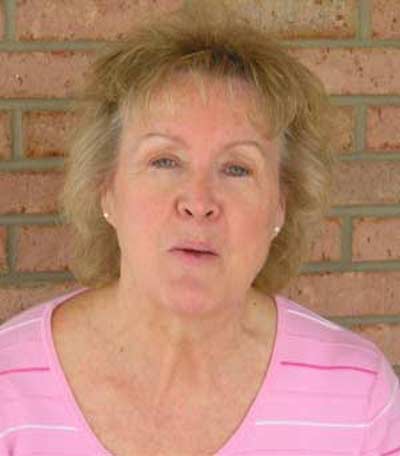
She started working for the Plain Dealer in 1974. She worked, went to school and raised her children simultaneously. "I would take books to study to the ball park to watch the kids' games." She worked as a "stringer" for the Plain Dealer for 17 years. "Stringer is just a fancy name for correspondent." She covered council meetings, trials, commissioners meetings and other related events. She would call in the story and the reporters would write it up. "The most boring part of that job was listening to people with no power act as if they were in charge of the world. Give some people a mic and there's no stopping them."
In 1983 Susan went back to school. "It was the most enterprising thing I've ever done." She had been left without medical insurance for her or her kids after the divorce. She remembered that as a student medical insurance was available and affordable through Cleveland State. So she went back to school until she got a job that came with benefits. She had to maintain 12 hours to keep the insurance going. In 2 years she had earned her Masters Degree and had a job with benefits. "When all of the choices are bad, you pick the best bad choice. I had no option I had to support my children." In the divorce settlement Susan only asked for $25 a week for three years - just enough to make him think about me once a month, but not enough for him to think he was actually helping." Susan has worked a lot of different jobs and has been fired from several "I have a big mouth and not much luck trying to keep it closed."
As an example she sites her 6 years at the Newspaper Guild. During one election she sent out a letter to the membership suggested they vote for the incumbent's opposition. "I knew there would be repercussions, but I also knew it was the right thing to do and the best thing for the members. Of course the incumbent won and I got fired." It turned out that he won the election illegally, a new election was called for and he lost the second election. "I knew I was right and that was more important than the job."
Soon after she left the union she got a call from a man she knew who was a former IRS agent. He now had a Private Investigation firm. He asked her to work for him basically researching and looking up records. Soon after she did that job another man called and asked for her help in a case he was working. She wound up staying there for a year and a half.
"Then I took the State Test and got my own license." The day she took the test she was one of nine people taking it. In order to qualify to take the test you must work under someone else's license for a minimum of two years, which she had. It was a four hour, very inclusive test, which she had studied strenuously for, and passed. She started working on her own in 1993 and two years later opened Daniels & Associates Investigations Inc. She started with one customer and has grown every year since.
Susan is now living in Kirtland. Her children are "strewn far and wide. I have two in Hawaii, one in Maryland and Colorado and Texas and right here in Willoughby Hills." She has six grandchildren and one great grandchild. Susan says the future holds more of the same. She's not looking to make major changes in her personal or business life. 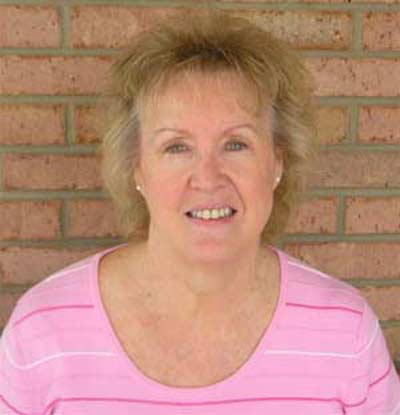
Susan says she is "blessed with a very logical mind" and undoubtedly is. She says she read somewhere "When the road ends, make another road." Susan has spent much of her life making roads where others may have found a dead end. She has dealt with hard times and sad times and has managed to turn them into good times.
She has been immortalized in a character in local author Les Robert's book, The Indian Sign, as a P.I. from Lake County named "Suzanne Davis." Of Susan Daniels Les says, "She will return in the one I'm writing now, King of the Holly Hop, which will be published next year." Les Roberts continues, "Susan is one of my oldest friends here in the Cleveland area, and each time we talk I learn more about her and about how fascinating it is for her to work in her profession."
Profiled by Debbie Hanson (11/06)

Top of Page
Back to Cleveland Senior Profiles
| 





